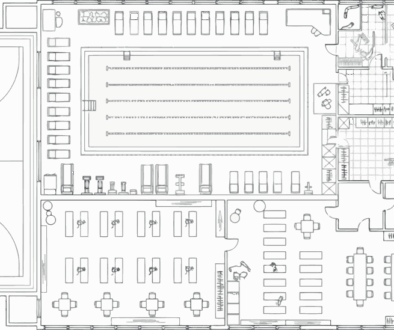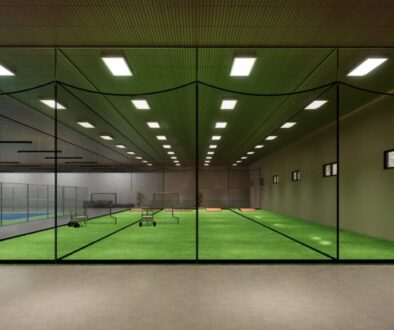The 2 Essential Skills Most Facility Owners Lack
This is a guest post by Tim Ziakas, Managing Partner of Parkview Sports Group. I met Tim when his baseball facility started using eSoft Planner, the scheduling software I built for sports facilities. Tim now uses his experience in finance and ownership to help sports facilities around the country improve.
When your sports facility is struggling, it’s easy to find something to blame, whether its the economy, the weather, or a bad hire or other one-time mistake that you’ve learned from.
It’s more difficult to think about how you – the owner or manager – might be to blame. But that’s exactly where you need to start when diagnosing business problems. You might not even be aware of how your habits are setting the tone for your entire business.
Leaders hold themselves accountable. It’s not easy, but it’s part of the job. I know, because I was the owner of a sports facility for 7 years.
I decided to start Parkview Sports consulting service after noticing a need for it in the sports community, and I talk to sports facility owners every day to get a deep understanding of what’s holding them back. Over the years, I’ve identified the biggest and most common roadblocks to success, regardless of your sports facility type, and they come down to 2 fundamental skills.
Skill #1: Time Management
What will you be doing next Wednesday at 10 a.m.?
If you don’t know, you have a problem.
The average small business owner starts each morning with no idea what they’ll do that day. They have so many pressing items on their to-do lists that it’s easy to jump in and get started without taking time to plan and prioritize — which means they’re always working in reactive mode.
To be really successful, you must learn to be proactive. That means setting aside specific times for your top priorities each week, both business and personal. (If you don’t schedule time for personal priorities like family and fitness, they’ll get forgotten in favor of business concerns that always seem more urgent, and your business will eventually suffer as a result.)
You don’t have to schedule out every minute of your day. Start by making a list of the 10-15 most important things you need to do each week.
For example, maybe you’re one of the many sports facility owners who don’t regularly review their sales numbers. (Do you think the CEO of Apple or Amazon would miss a regular review of the numbers that are keeping their business profitable? No – and you shouldn’t, either. You’re a CEO too, so take it seriously.) What about time each week to think about the big picture and plan ahead? That’s another critical task that is quickly forgotten when you’re working in reactive mode.
Set aside time for your top 10-15 tasks on your calendar. It won’t take long for you to start feeling more relaxed and in control, and your business will start reflecting your true priorities.
Skill #2: Leadership
The typical sports facility entrepreneur is passionate, high energy and borderline ADD. You need to have your mind racing to be successful in the beginning, but as your business grows, you need to get out of the way and let others do the things you’re not very good at.
That’s where leadership comes in – making sure your entire team has the resources and motivation they need to succeed. Leadership depends on these ability to do six things:
- Be Honest with yourself, your customers and your staff.
- Be Fair. Favoritism is toxic to your sports facility’s culture.
- Give Direction. If your staffers aren’t doing a good job, it’s your fault. You can’t assume your staff will treat your business the way that you treat it. I’m always surprised at how many sports facility owners have no plan to motivate their staff.
- Take Direction. The best entrepreneurs are always seeking outside help and feedback.
- Be Firm. Don’t get walked on. Once you make a decision – stick with it. For example, don’t give bonuses if your staff came up just short of the bonus goal.
- Be Reasonable. Make calculated decisions based on logic and reason, not on gut instinct or a “feeling.” Take the time to understand consequences of your actions and decisions. Making decisions for your business with an eye on the long-term is incredibly important.
I know what you’re thinking: These leadership characteristics are pretty obvious. And yet it’s mind-blowing how many entrepreneurs ignore them.
Get Help With Your Time Management and Leadership Skills
If these struggles are familiar, you’re definitely not alone.
Most sports facility owners will read this, nod to themselves and think, “yeah, I need to plan my time better” — and then go on as usual.
I challenge you to identify one real, action step toward improving one of these skills right now, whether it’s writing down your list of your priorities or making time for that important task you’ve been putting off.
If you want help getting started, I’m ready to help. Everyone can benefit from getting feedback from an expert and being held accountable by a partner.
Please understand that I won’t just point out a bunch of things I think you’re doing wrong and leave you to deal with them. We’ll start by discussing your goals, including your personal exit strategy for the business, and then work together to fortify the three basic building blocks of any sports facility: staff, systems and services. I’d like to tell you more. Just fill out this form to get in touch with me. I look forward to hearing from you.
More About Tim and Parkview Sports Group
With a degree in Economics, a career as a financial advisor, and experience owning and operating a sports facility himself, Tim has developed a full service management and consulting company that focuses on the needs of sports facilities and recreational franchises from coast to coast.



